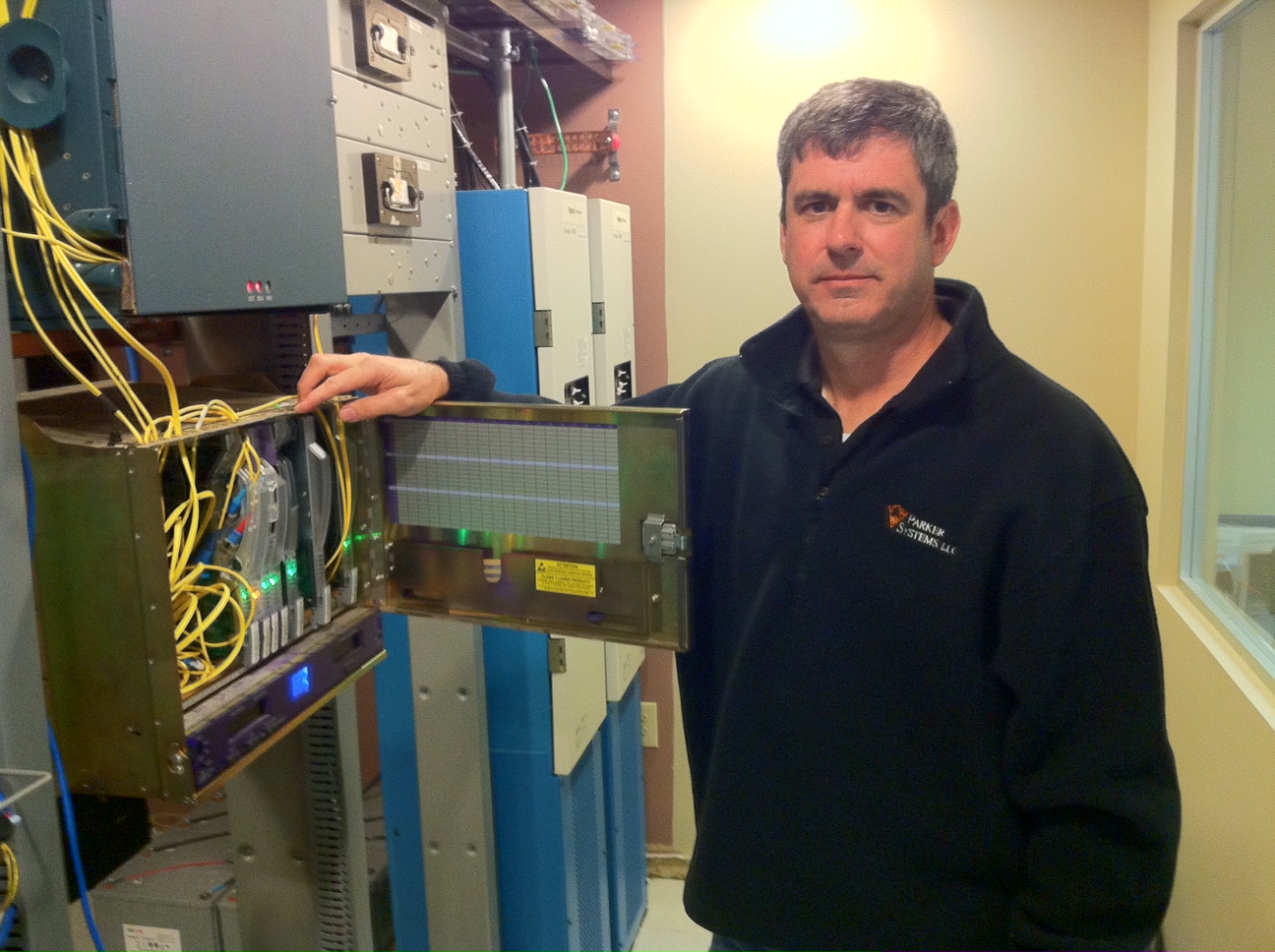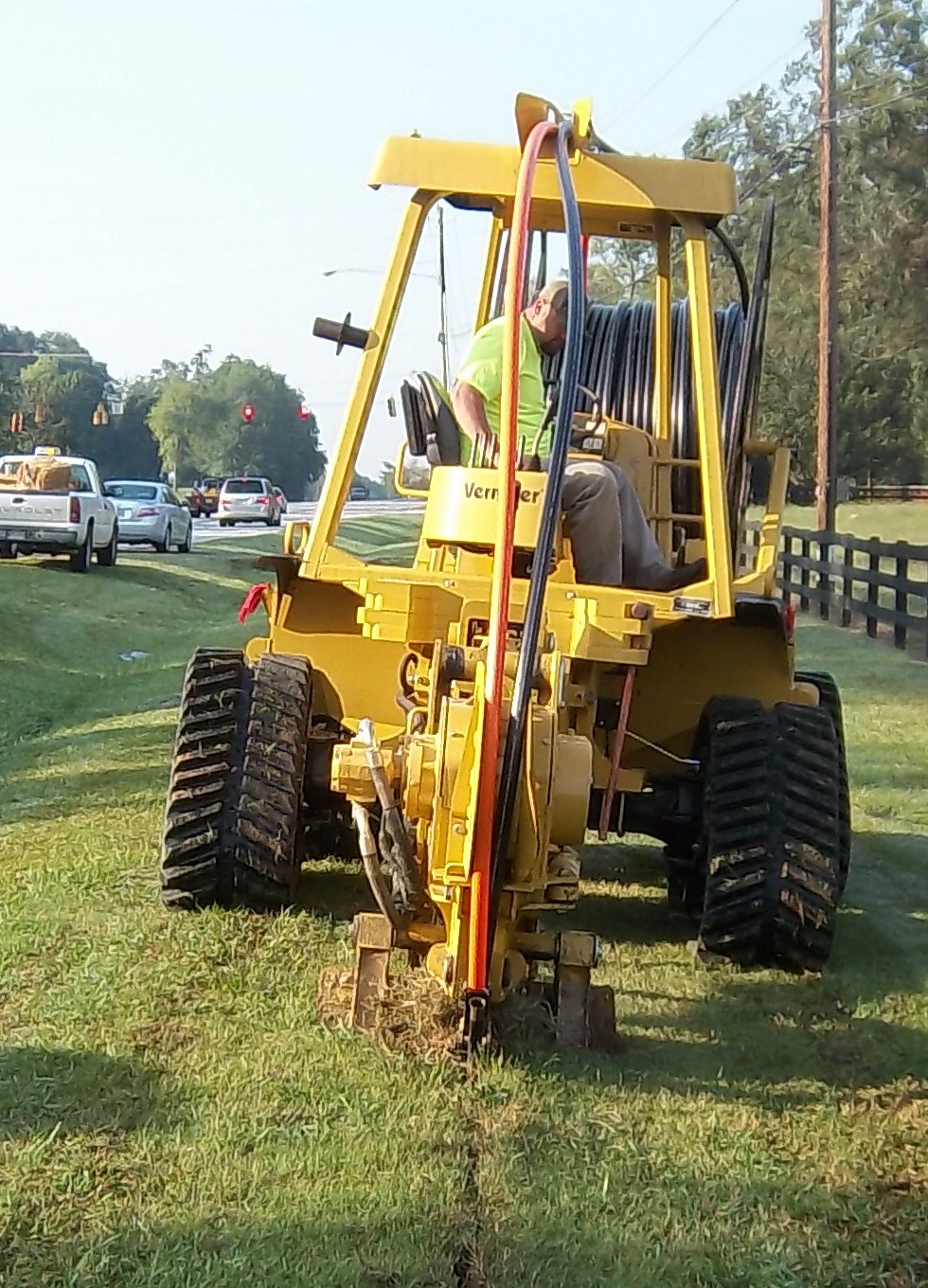ON THE NETWORKGeorgia countiesBartowChattoogaDadeFloydGordonHaralsonPauldingPolkWalkerAlabamaCalhounClayCleburne
One of Chattanooga's nicknames is "gig city," because the city-owned utility, EPB, was the first in the nation to offer super-high-speed, fiber-optic Internet access of up to one gigabit per second.
Now "gig country" is sprouting up southwest of Chattanooga.
Workers were installing fiber-optic cable last week along U.S. Highway 27 near Chickamauga, Ga.
It's the newest stretch of the Appalachian Valley Fiber Network funded by a $21 million U.S. Department of Commerce grant awarded in 2010 to expand broadband access to an underserved area.
The federal stimulus grant requires construction of at least 187 miles of new fiber-optic cable that will be routed through nine counties in northwestern Georgia and three in eastern Alabama.
Parker FiberNet, a business with offices in Summerville and Rome, Ga., got the grant and is contributing a local match of $6 million to build the network, which it will own and charge customers to use.
"We're not taking it to homes," said company official Ken Carlton.
While EPB brings fiber-optic cable directly to a customer's home, the Appalachian Valley Fiber Network instead will connect as many as 185 community institutions, including 16 K-12 schools, 46 public safety facilities, 40 medical facilities and 48 other government facilities.
The Haralson County, Ga., school system has joined the new network, according to a six-minute video touting the Appalachian Valley Fiber Network that recently was posted on the website of the Northwest Georgia Regional Commission.
"By having this increased bandwidth, we'll be able to have kids collaborating with each other between the different schools -- and with other children from across the world," said Marty Bray, the school system's chief technology officer, in the video.
The availability of high-speed broadband will help the rural region compete for business, its supporters say.
"It's an amazing project, but they have to do amazing things with it," said technology consultant Greg Laudeman. "The real challenge is to develop the technology talent -- from top leaders to regular folks, as well as tech geeks -- to make the most of broadband."
Walker County, Ga., Sole Commissioner Bebe Heiskell praised the project in an email.
"The level of service this network will provide enables development sites in Walker County to match the broadband speed and capacity of any other area in the country," Heiskell said. "We want to capitalize on every asset possible to bring jobs to our region and to Walker County."
Carlton said, "If you've got it, it's great. If you don't have it, you're at a disadvantage."
It's possible that a private company someday could piggyback on the fiber network to provide residential service, Carlton said.

